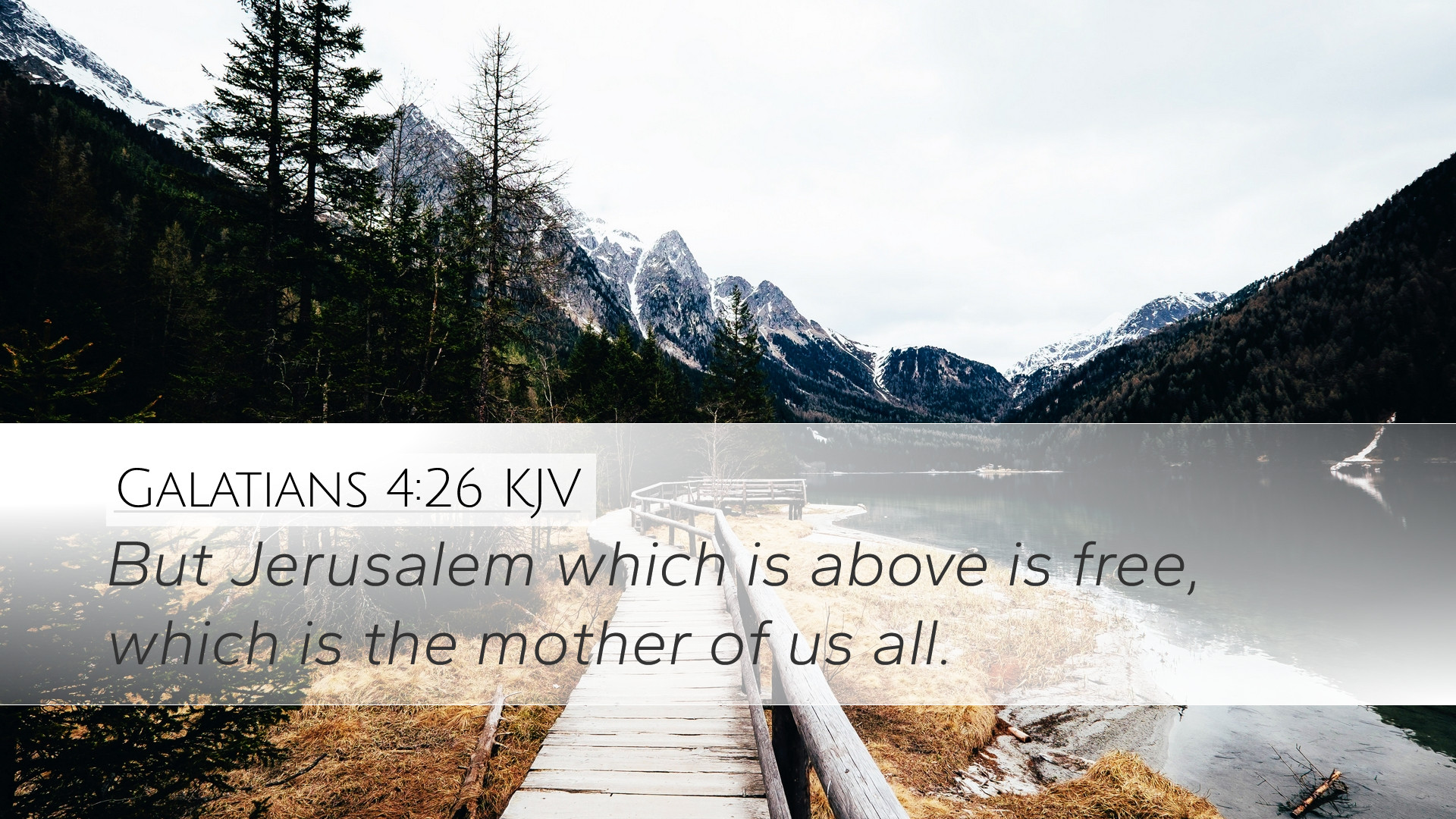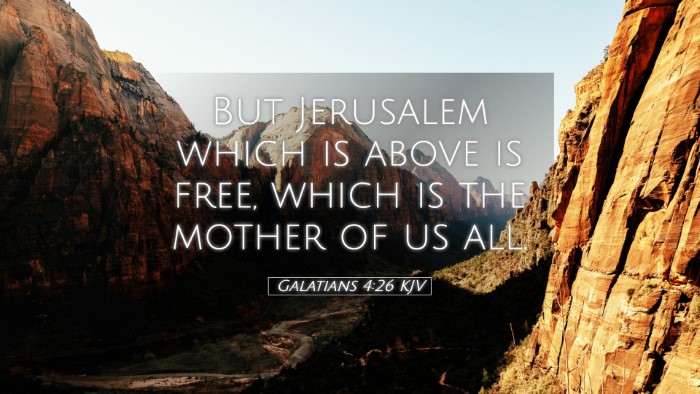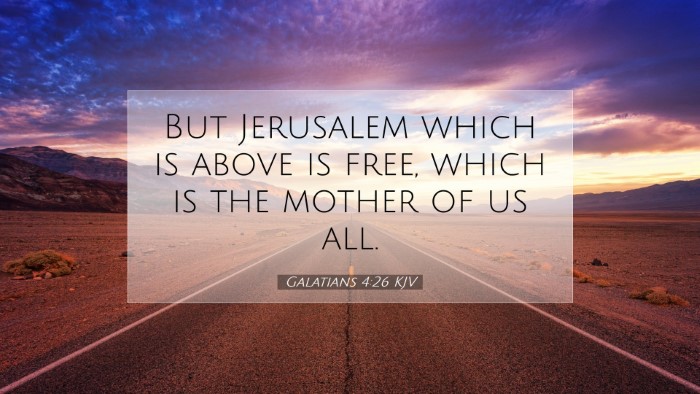Galatians 4:26 - Commentary and Insights
Verse Text: "But Jerusalem which is above is free, which is the mother of us all." (Galatians 4:26, KJV)
Introduction
The Apostle Paul’s letter to the Galatians serves as a foundational text for understanding the promise of freedom through faith in Christ. In this specific verse, Paul contrasts the earthly Jerusalem with a heavenly one, emphasizing the nature of the Christian community.
Contextual Analysis
To fully appreciate Galatians 4:26, one should engage with its surrounding context. Paul speaks of two covenants, often represented as two mothers: Hagar, symbolizing bondage and the law, and Sarah, representing freedom and grace. This duality is significant in understanding the transition from the Old Covenant to the New Covenant established by Christ.
Commentary Insights
Matthew Henry's Commentary
Matthew Henry provides a rich exposition on the significance of the "Jerusalem which is above." He notes that this Jerusalem represents the spiritual heritage of believers, born not of the flesh but of the Spirit. For Henry, this heavenly city embodies all that believers are called to aspire toward, illustrating our citizenship in heaven (Philippians 3:20).
Albert Barnes' Notes on the Bible
Albert Barnes emphasizes the contrast between the earthly and the heavenly. His analysis indicates that the "mother" metaphor used here suggests care, protection, and lineage. Barnes explicates that being part of this heavenly Jerusalem means being under grace, liberated from the bondage of the Law. He envisions the heavenly Jerusalem as the ultimate abode of all believers, characterized by spiritual prosperity and eternal communion with God.
Adam Clarke's Commentary
Adam Clarke elaborates on the implications of being "free" in this verse. He posits that freedom is not merely the absence of bondage but an active participation in the blessings of God's promises. Clarke suggests that this freedom is vital for the identity of Christians; it defines their relationship to the law and their mission in the world. He also touches upon the idea that recognizing the heavenly Jerusalem encourages believers to rise above worldly struggles and live with a divine perspective.
Theological Implications
This verse has profound theological implications, especially concerning the nature of salvation and the new covenant. It draws attention to the believer's identity in Christ, which is not defined by earthly ties but rather by a new birth through the Spirit. As Paul writes, the heavenly Jerusalem is "the mother of us all," indicating that every believer, irrespective of their background or descent, is unified in this new status.
Spiritual Motherhood
The concept of "mother" here can be understood as an expression of nurturing and growth. Just as a mother provides life and sustenance, the heavenly Jerusalem symbolizes the source of spiritual life and growth for Christians. This community fosters a shared identity, one that transcends cultural and ethnic divides.
Freedom and Responsibility
Henry, Barnes, and Clarke converge on the idea that the freedom mentioned is coupled with responsibility. Freedom in Christ does not lead to license but to a life of joyful obedience. This understanding challenges Christians to live out their faith actively and engage in their communities with love and grace.
Implications for Ministry and Teaching
For pastors and teachers, Galatians 4:26 serves as a call to articulate the message of freedom that comes from understanding our identity in Christ. It is crucial to help congregants see that they are part of a larger family, a divine narrative rooted in the promises of God. Here are some approaches for effective teaching:
- Emphasizing Identity in Christ: Encourage believers to see themselves as children of the heavenly Jerusalem, fostering a sense of belonging and purpose.
- Teaching about Freedom: Help congregants grasp what it means to be free from the law and live in the grace of God, balancing freedom with responsibility.
- Highlighting Community: Promote unity within the church, reminding people that they belong to a diverse but unified family under God’s care.
- Encouraging Spiritual Growth: Cultivate an environment where believers are nurtured in their faith, much like a mother nurtures her children.
Conclusion
Galatians 4:26 encapsulates a profound truth about the believer’s position in Christ. Through the lens of the commentaries by Henry, Barnes, and Clarke, we see how this verse highlights the believer’s transition from bondage to freedom, from earthly to heavenly. As one reflects on the implications of being part of the "Jerusalem which is above," it calls for a commitment to live out this identity with grace, responsibility, and a spirit of unity.


